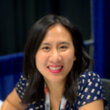Transcendent kingdom
Description
More Details
9780593215326
9780525658184
9780525658191
Subjects
Brothers -- Death -- Fiction
California -- Fiction
Depressed persons -- Fiction
Faith -- Fiction
Families -- Fiction
Fiction
Ghanaians -- United States -- Fiction
Grief -- Fiction
Literature
Mentally ill mothers -- Fiction
Psychiatry -- Research -- Fiction
Women medical students -- Fiction
Excerpt
Similar Titles From NoveList
Similar Authors From NoveList
Published Reviews
Booklist Review
Following her spectacularly lauded, bestselling historical and ancestral debut, Homegoing (2016), Gyasi's turns to the contemporary, tracing the dissolution of a Ghanaian immigrant family. By the time Gifty leaves Alabama for Harvard, she's resolved to "build a new Gifty from scratch" by shedding the debilitating experiences of her young life: her father's abandonment and return to Ghana, her older brother Nana's heroin overdose, her mother's suicidal depression, her faltering faith. In Cambridge, she could be "confident, poised, smart . . . strong and unafraid." Four years later, she's untethered again, arriving at Stanford to work toward a neuroscience PhD. For all her groundbreaking research, she's really just trying to comprehend what happened to beloved Nana via cocaine-and-then-Ensure-addicted lab mice which became willing to risk physical damage for gratification. Six years into the program, Gifty's mother arrives, once more cripplingly withdrawn. Her silent presence will require some semblance of confrontation and reconciliation with their tragic past. Despite compounding challenges and tragedies, Gyasi never allows Gifty to devolve into paralyzing self-absorption and malaise. With deft agility and undeniable artistry, Gyasi's latest is an eloquent examination of resilient survival.
Publisher's Weekly Review
Gyasi's meticulous, psychologically complex second novel (after Homegoing) examines the consequences of a Ghanian family's immigration to Huntsville, Ala. Gifty, the only member of the family born in the United States, is six years into a doctorate in neuroscience at Stanford, where she is attempting to see if she can alter the neural pathways leading to addiction and depression. Her project is motivated by the fate of her beloved older brother who died from a heroin overdose when she was in high school, and by the condition of her depressed mother, who is staying at Gifty's apartment. Though she now determinedly puts her faith in science, Gifty still feels the pull of her evangelical upbringing, and she struggles to reconcile the two opposing belief systems while juggling her dissertation and care for her mother, plus a growing attraction to her awkward lab mate. The narrative moves smoothly between the present and Gifty's childhood, with episodes such as a summer spent in Ghana with her aunt during a previous phase of her mother's depression rising in the background while Gifty works her way up in her field. Gyasi's constraint renders the emotional impact of the novel all the more powerful: her descriptions of the casual racism endured by the family, particularly at the hands of their nearly all-white church in Alabama, is more chilling for being so matter-of-fact. At once a vivid evocation of the immigrant experience and a sharp delineation of an individual's inner struggle, the novel brilliantly succeeds on both counts. (Sept.)
Library Journal Review
Gyasi's (Homegoing) beautifully crafted story is a masterwork of intertwining time lines and narratives. Gifty, the daughter of Ghanaian immigrants, sees her family go from four to three to two when her father travels back to Ghana for a visit but never returns to the family home in Alabama and her brother, a star basketball player, injures his ankle, becomes hooked on pain pills, and dies of a heroin overdose. His death sends Gifty's mother into a deep depression. As an adult, Gifty is studying neuroscience at Stanford when her mother suffers from another bout of depression and is sent to stay with her in California. Gifty begins to examine the spiritual beliefs she grew up with in her evangelical church, the emotions surrounding her brother's addiction and her mother's depression, and how each of those has affected her relationships as an adult. Bahni Turpin weaves Ghanaian words and accents and scientific terminology effortlessly into the narration of the story. Though the story is told from Gifty's perspective, Turpin creates unique voices for the host of supporting characters and makes it feel like there is a cast of voice actors instead of just one. VERDICT A must read. This is one of the rare books that is so well crafted, the narrative(s) flow so effortlessly, that you only feel the power of the story and don't realize the complex structure underneath.--Courtney Pentland, Omaha, NE
Kirkus Book Review
A scientist weighs the big questions that her private trauma bequeaths her. After Homegoing (2016) swept through seven generations, Gyasi's wise second novel pivots toward intimacy. It unspools entirely in the voice of watchful, reticent, brilliant Gifty, 28, nearly finished with her doctorate in neuroscience at Stanford's School of Medicine. Her formidable mother, a home health care aide, has plummeted into a second severe depression, and their family pastor has dispatched the limp woman toward Gifty via airplane from Huntsville, Alabama, "folding her up the way you would a jumpsuit." The first episode, when Gifty was 11, arrived after an opiate overdose stole the life of 16-year-old Nana, the firstborn son and more cherished child. Both times the Ghanaian matriarch has crawled mutely into bed, but this time not before asking adult Gifty if she still prays. "No," says Gifty, who turns her ontological questions on lab mice. She gets them addicted to Ensure and then opens their brains surgically, probing the neural pathways of recklessness, looking for clues to creating restraint. Gifty hopes to apply her results to "the species Homo Sapiens, the most complex animal, the only animal who believed he had transcended his Kingdom, as one of my high school biology teachers used to say." This work, Gifty insists, has zero to do with her brother's death. In 54 microchapters and precise prose, Gyasi creates an ache of recognition, especially for readers knowledgeable about the wreckage of addiction. Still, she leavens this nonlinear novel with sly humor, much more than in Homegoing, as the daughter of a traditional woman weighs what it means to walk in the world not quite a nonbeliever. The author is astute about childhood grandiosity and a pious girl's deep desire to be good; she conveys in brief strokes the notched, nodding hook of heroin's oblivion. In its wake, adult Gifty sits with the limits of both bench science and evangelical Christianity. Nowhere does Gyasi take a cheap shot. Instead, she writes a final chapter that gives readers a taste of hard-won deliverance. In a quietly poignant story, a lonely woman finds a way to be less alone. Copyright (c) Kirkus Reviews, used with permission.
Booklist Reviews
Following her spectacularly lauded, bestselling historical and ancestral debut, Homegoing (2016), Gyasi's turns to the contemporary, tracing the dissolution of a Ghanaian immigrant family. By the time Gifty leaves Alabama for Harvard, she's resolved to "build a new Gifty from scratch" by shedding the debilitating experiences of her young life: her father's abandonment and return to Ghana, her older brother Nana's heroin overdose, her mother's suicidal depression, her faltering faith. In Cambridge, she could be "confident, poised, smart . . . strong and unafraid." Four years later, she's untethered again, arriving at Stanford to work toward a neuroscience PhD. For all her groundbreaking research, she's really just trying to comprehend what happened to beloved Nana via cocaine-and-then-Ensure-addicted lab mice which became willing to risk physical damage for gratification. Six years into the program, Gifty's mother arrives, once more cripplingly withdrawn. Her silent presence will require some semblance of confrontation and reconciliation with their tragic past. Despite compounding challenges and tragedies, Gyasi never allows Gifty to devolve into paralyzing self-absorption and malaise. With deft agility and undeniable artistry, Gyasi's latest is an eloquent examination of resilient survival. Copyright 2020 Booklist Reviews.
Library Journal Reviews
Having won numerous honors (e.g., a National Book Foundation's 5 Under 35 shout-out) for her debut, Homecoming, Gyasi returns with the story of a Ghanaian American family based in Alabama. A sixth-year PhD candidate in neuroscience at Stanford University School of Medicine, Gifty hopes science can give her a better understanding of suffering when her brother dies of a heroin overdose after getting hooked on the OxyContin he took for an injury and her grief-stricken mother takes to her bed. But she also surprises herself by turning to her childhood faith.
Copyright 2020 Library Journal.Library Journal Reviews
Gifty was still in elementary school when the solid pillars that bolstered her life tumbled down. Her dad returned to Ghana, her beloved brother Nana overdosed on OxyContin, her mother disappeared in a morass of despair, and God stopped listening. Mentored by a biology teacher, Gifty finds solace in her studies, escaping Alabama for a science lab and a PhD program at Stanford, a place where if you asked questions you'd get answers. She avoids human entanglements, preferring time spent with her mice and the research that might shed light on the science of addiction. An intuitive and introspective companion, Gifty toggles back and forth in time, unspooling her people's immigrant journey from a village in Ghana to Huntsville, AL, where racism manifested in a thousand tiny cuts. Confused, ashamed, and resentful of her family, Gifty surrounds herself with a protective wall of secrecy, pushing away anyone who tries to penetrate her carapace, until her mother's arrival in California forces a breakthrough. VERDICT Though it's a departure from her gorgeous historical debut, Homegoing, winner of the NBCC's John Leonard Prize, Gyasi's contemporary novel of a woman's struggle for connection in a place where science and faith are at odds is a piercingly beautiful tale of love and forgiveness. [See Prepub Alert, 2/14/20.]—Sally Bissell, formerly with Lee Cty. Lib. Syst., Fort Myers, FL
Copyright 2020 Library Journal.Publishers Weekly Reviews
Gyasi's meticulous, psychologically complex second novel (after Homegoing) examines the consequences of a Ghanian family's immigration to Huntsville, Ala. Gifty, the only member of the family born in the United States, is six years into a doctorate in neuroscience at Stanford, where she is attempting to see if she can alter the neural pathways leading to addiction and depression. Her project is motivated by the fate of her beloved older brother who died from a heroin overdose when she was in high school, and by the condition of her depressed mother, who is staying at Gifty's apartment. Though she now determinedly puts her faith in science, Gifty still feels the pull of her evangelical upbringing, and she struggles to reconcile the two opposing belief systems while juggling her dissertation and care for her mother, plus a growing attraction to her awkward lab mate. The narrative moves smoothly between the present and Gifty's childhood, with episodes such as a summer spent in Ghana with her aunt during a previous phase of her mother's depression rising in the background while Gifty works her way up in her field. Gyasi's constraint renders the emotional impact of the novel all the more powerful: her descriptions of the casual racism endured by the family, particularly at the hands of their nearly all-white church in Alabama, is more chilling for being so matter-of-fact. At once a vivid evocation of the immigrant experience and a sharp delineation of an individual's inner struggle, the novel brilliantly succeeds on both counts. (Sept.)
Copyright 2020 Publishers Weekly.


































